A rich, beautifully layered ode to the great city of Cairo, Egypt, its people, and culture.
Egypt
Materials from Egypt
The Arabic Quilt: An Immigrant Story

Kanzi’s family has moved from Egypt to America, and on her first day in a new school, what she wants more than anything is to fit in. In this story based on the author’s own childhood experience, Kanzi’s most treasured reminder of her old home provides a pathway for acceptance in her new one.
The Curse Of The Mummy: Uncovering Tutankhamun’s Tomb
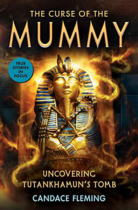
During the reign of the New Kingdom of Egypt, the boy pharaoh Tutankhamun ruled and died tragically young. In order to send him on his way into the afterlife, his tomb was filled with every treasure he would need after death. And then, it was lost to time, buried in the sands of the Valley of the Kings.
His tomb was also said to be cursed.
Centuries later, as Egypt-mania gripped Europe, two Brits — a rich earl with a habit for gambling and a disreputable, determined archeologist — worked for years to rediscover and open Tutankhamun’s tomb. But once it was uncovered, would ancient powers take their revenge for disturbing and even looting the pharaoh’s resting place? What else could explain the mysterious illnesses, accidents, and deaths that began once it was found?
The Secrets Of Tutankhamun
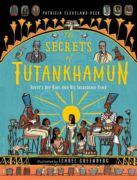
Tutankhamun was born in a time of change. His father, Atakhenaten, instituted broad political and religious reform to Egypt, and his laws were controversial. By the time Tut turned nine, his whole family had died and he was named the youngest king Egypt had ever had. His rule was short and tumultuous, and around age nineteen, Tut died. More than three thousand years later, Howard Carter, a British archaeologist with a penchant for ancient history and a special skill for excavation in Egypt’s Valley of the Kings, made a discovery that shocked the world: King Tut’s tomb, long ago assumed destroyed, not only survived but was fully intact. The treasures within gave a stunning and undisturbed perspective on ancient Egyptian culture and uncovered secrets that fascinated the world.
In A Perfect World

From critically acclaimed author Trish Doller comes a gorgeous, hopeful, and heartbreaking novel, set in Cairo, Egypt, about the barriers we tear down for the people and places we love most.
Pyramid
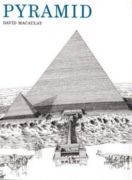
Text and black-and-white illustrations follow the intricate step-by-step process of the building of an ancient Egyptian pyramid.
Mummy Cat
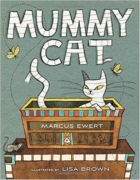
Mummy Cat prowls his pyramid home, longing for his beloved owner. As he roams the tomb, lavish murals above his head display scenes of the cat with his young Egyptian queen. Hidden hieroglyphs deepen the tale and are explained in an informative author’s note.
Anubis Speaks!
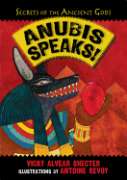
Anubis, the ancient Egyptian jackal-headed god of embalming, invites young readers to climb aboard his magic boat for a trip to the Land of the Dead. When the sun goes down, readers join Anubis as he and Ra, the sun god, fight the forces of chaos and destruction unleashed by the Evil One, a giant snake named Apophis. It’s a battle waged each night until sunrise when the forces of good prevail. During the journey, readers will meet gods, monsters, and pharaohs, learn the techniques of mummification, and help Ra conquer darkness and bring light to the world at dawn.
Hidden Girl

An inspiring and compelling memoir from a young woman who lost her childhood to slavery—and built a new life grounded in determination and justice. Shyima Hall was born in Egypt on September 29, 1989, the seventh child of desperately poor parents. When she was eight, her parents sold her into slavery. Shyima then moved two hours away to Egypt’s capitol city of Cairo to live with a wealthy family and serve them eighteen hours a day, seven days a week. When she was ten, her captors moved to Orange County, California, and smuggled Shyima with them. Two years later, an anonymous call from a neighbor brought about the end of Shyima’s servitude—but her journey to true freedom was far from over. A volunteer at her local police department since she was a teenager, Shyima is passionate about helping to rescue others who are in bondage. Now a US citizen, she regularly speaks out about human trafficking and intends to one day become an immigration officer. In Hidden Girl, Shyima candidly reveals how she overcame her harrowing circumstances and brings vital awareness to a timely and relevant topic.
The Riddle Of The Rosetta Stone
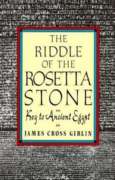
Describes how the discovery and deciphering of the Rosetta Stone unlocked the secret of Egyptian hieroglyphics.
